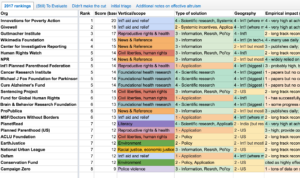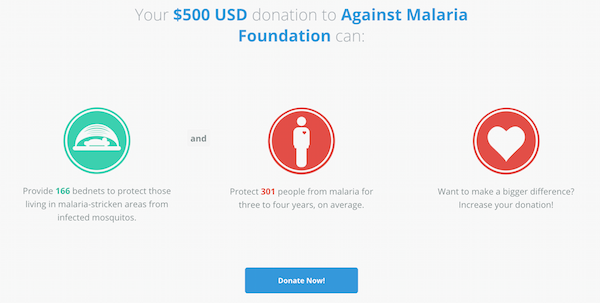A happy, hopeful end to 2017: donation recommendations & matching
2017 has been a particularly stressful and disaster-filled year for many people. So this year, I wanted to do something extra in addition to my normal charity recommendations. I’m still providing recommendations, but this year, I’m also providing some matching funds.
I’ve selected three causes, and top charities for each cause. If you’re interested in donating to these charities, some friends and I pooled our money, and we are going to match your donation, doubling your impact (links go to fundraising pages):
- Direct Relief (Focus: disaster relief & preparedness)
- ACLU Foundation (Focus: civil rights & civil liberties)
- Innovations for Poverty Action (Focus: international aid & foundational research — this is where your dollar will go the farthest to change the most lives)
The above links go to fundraising pages at Crowdrise, a site endorsed by these three charities for raising funds.  At each of the above links, I’ve explained my choices of charities in detail, including the risks, benefits, and alternatives to donating.
So far I’ve found donors willing to match up to $2000 for each charity — and if we meet that goal, perhaps I can get more. If we prove that this works, there are other potential matching donors may be willing to jump in and increase that amount.
I’ve also updated my recommendations spreadsheet that I started earlier this year. It contains my rankings for 26 charities I’ve researched (for a wider set of causes), and it contains notes about why I ranked the charities the way I did. So if you have different priorities than I do, you should hopefully be able to create your own ranking accordingly.
You can also read my thinking and recommendations from past years, much of which still holds.
Comments off


